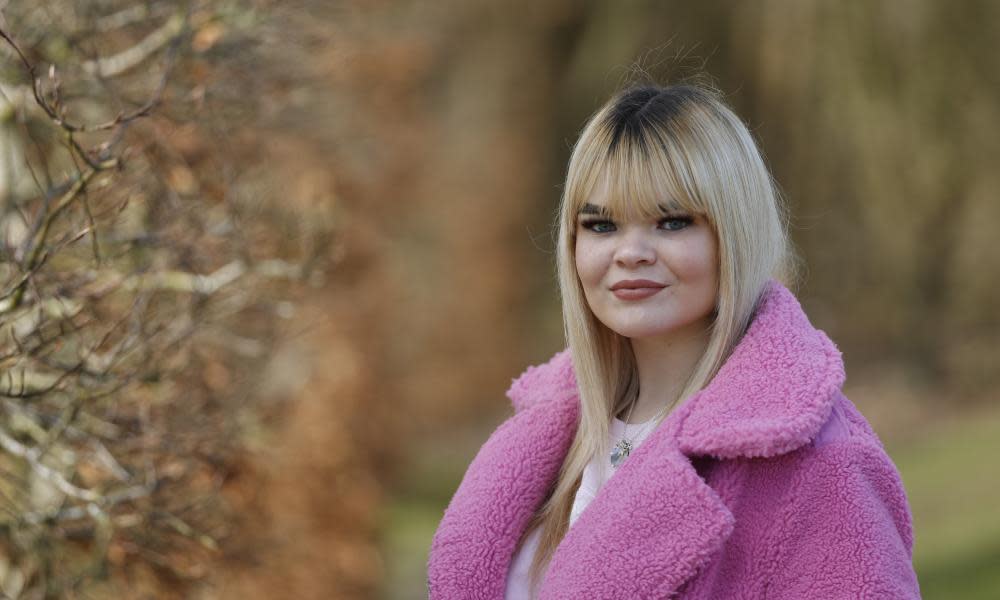Volunteer lockdown army helps to make Britain brighter

He calls her his “wee ray of sunshine”; she says he brightens her day and talking to him breaks up the hours alone in the house. It’s an unlikely friendship between an 18-year-old student and a 70-year-old man, Chris, born out of the worst health crisis in a century.
Freya Riley, from Kelty in Fife, saw an appeal for volunteers on social media last March and stepped forward. “I knew that people were feeling alone and I wanted to help,” she said.
Riley was one of millions who have volunteered to help others over the course of the past year. New research to be published on Monday reveals that a staggering 12.4 million adults in the UK have volunteered during the pandemic – with more than a third stepping forward for the first time.
Related: Blooms of hope: the gardening groups delivering smiles during lockdown
The research, commissioned by Together, a coalition of organisations and community groups, found that the new army of volunteers live in all parts of the UK and come from different social, ethnic and faith backgrounds.
More than 750,000 are young adult first-time volunteers, aged between 18 and 24. Almost as many are people who live in the UK’s poorest neighbourhoods. Many are keen to expand their voluntary activities.
A separate study by the charity Belong and the University of Kent last week concluded that people who volunteered were more protected from some of the worst effects of the pandemic, and were more optimistic about the future. Volunteers reported greater connection with family and friends (10.5% higher on average), greater general political trust (10.6% higher) and a greater sense of neighbourliness (16.5% higher).
The Together report, Our Chance to Connect, says that within seven days of the first lockdown being announced on 23 March 2020, 300,000 people had volunteered with a charity and more than 750,000 had signed up as NHS volunteers.
By mid-April, there were more than 2,700 new “mutual aid” groups – people who had come together to support each other and vulnerable members of their community. Most were still active on social media in January this year, disseminating information, asking questions, requesting help and offering support.
Volunteers also help to run food banks, community centres, tenants’ associations, conservation projects, youth groups, sports clubs and cultural organisations, the report says.
Jill Rutter, who led the research for Together, said: “One of the few positives we can take from Covid-19 is how the public responded, with millions of people stepping up to help neighbours and vulnerable people in their community, or giving their time to support the NHS and local food banks. There is massive potential to harness this positive legacy. This surge in volunteering could help to build closer and more connected communities as we come out of lockdown.”
Catherine Johnstone, the chief executive of Royal Voluntary Service, said volunteering provided “a sense of purpose and is one of the most rewarding ways we can give back”.
She added: “It is one of the most pivotal ways to unite us and this is something the Covid-19 pandemic has really taught us.”
Riley, who is training to be a primary school teacher, wanted to “make a difference to someone’s day”. She phones Chris, with whom she was matched by a charity, twice a week for about half an hour.
“He’s interested in what’s going on in the world and we share a love of food and music. He says he’s seeing the world through a young person’s eyes, so that’s really nice. My grandparents have passed away so it’s good for me to chat to someone who is a bit older. We have a laugh and chat about nice things to cheer us both up and it means a lot to both of us.
“He calls me his ‘wee ray of sunshine’ because my call brightens up his day, and it’s lovely to hear that because it brightens my day, too. I thought I might do this for a few months, but we don’t plan on stopping.” Riley is now exploring other volunteering opportunities. “I would encourage people to give it a go. I never thought it would have such an impact on my life.”

 Yahoo Movies
Yahoo Movies 
